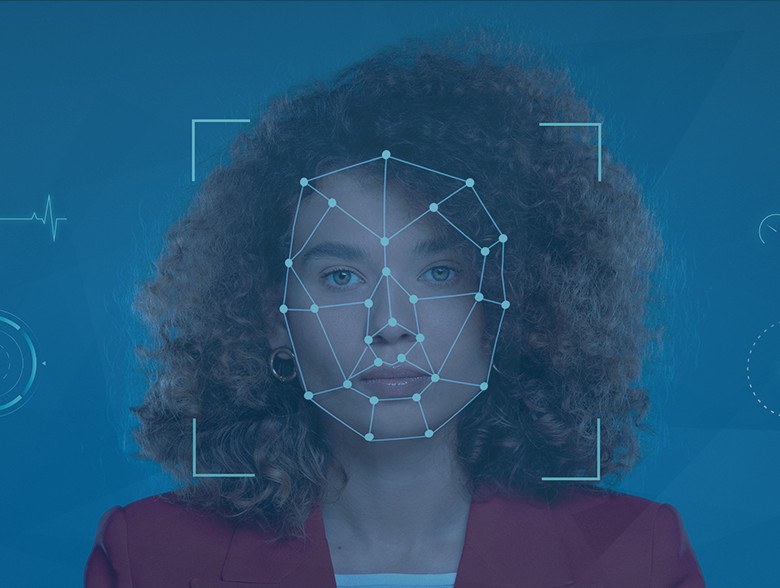By Mohit Shrivastava, Chief Analyst ICT, Future Market Insights
Biometric as a service (BaaS) works best as a striking alternative to other outmoded biometric software models. It becomes easy for organizations such as governments and telecommunication companies to use this technology in their everyday identity management operations. Companies hugely prefer using their technology as it allows employees to do fingerprint scanning and facial recognition easily by practicing. Consequently, getting rid of fraud becomes easy for organizations. Customers also use this technology as it streamlines customer service and takes less time to use. It is a less costly, and less time-consuming integration process. Biometric as a service market is growing because of the increasing demand for mobile biometrics.
Biometric as a Service (BaaS) – Provides Best Integration Services and Lessens the need for other Technical Resources to Integrate the Service
Biometric as a Service solution is accessible through the Internet and has all the functions, which allow for fingerprint scanning, facial recognition, and other biometric identification processes. Several biometrics-as-a-service providers provide integration services through which customers can easily enhance their present systems by integrating biometric capabilities. With this technology, it is not necessary to look for any other technical resource to integrate the service.
The Benefits of Using BaaS – An Easy Identification System
One of the key advantages of using this system is it allows BaaS providers to manage biometric information easily. Organizations or customers do not need to manage the information. In the identification system, enrolling employees or business partners is easy. For the first time, it is required to take fingerprint scans through an internet browser on a computer connected to biometrics- capturing device. Another advantage of using this system is acquiring biometrics search and enrolling capabilities without building the systems.
With the use of a digital camera, capturing facial recognition records becomes easy. Once the employees are enrolled, their locations can confirm the identities of people through an Internet connection to cloud-based databases including biometrics information.
Why there is an increasing Demand for Biometric as a Service (BaaS) System?
If we observe, organizations prefer cloud-based services because of their advantages such as flexibility, agility, and low costs. Due to could deployment, organizations can easily employ biometric security capabilities without opting for any multifaceted setup. The cloud offers the benefit of hybrid cloud deployment that offers the advantage of public as well as private clouds. Consequently, organizations are employing cloud services to streamline the intricacies involved with traditional ones.
BaaS works as the best means to verify the identities of people without forming any other infrastructure. By integrating BaaS technology, organizations need to leave other worries like biometric recognition codes and databases. They will get all these things over an internet connection.
How Biometric as a Service (BaaS) Market Growing?
There is a growing demand for cost-effective solutions for accessing advanced biometric capability which in turn fueling the biometric as a Service (BaaS) Market. The healthcare industry provides several key opportunities in the BaaS market and is estimated to expand at a high growth rate during forthcoming years. It becomes easy for enterprises to combat fraud with the BaaS system.
How to Use BaaS and Its Use Spreading in Different Sectors
BaaS is an important asset for organizations, shops, banks, and different big organizations that handle terrorism. If we take an example, the Nigerian Communications Commission disabled nearly 10.7 million unregistered SIM cards for preventing terrorist and criminal activity. In Nigeria some parts, some criminals buy and resell SIM cards to those who want to make Internet banking frauds, kidnappings, and other crimes using mobile technology. Biometric registration abolishes the anonymity involved with purchasing SIM cards. If somebody wants to purchase a SIM card, it is necessary to register a fingerprint with the telecom every time. Authorities will be able to know his or her identity easily when a SIM owner attempts to employ the related number for criminal activity, fraud, and robbery.
BaaS prevents from happening fraud, big crimes, and losses in many ways. Suppose a criminal attempts to open a bank account in the customer’s present name. The onboarding system can easily identify him or her and tells the person is not who he claims to be by scanning the fingerprints of the criminal. Consequently, the customer service provider dismisses the transaction and makes it safe.
BaaS can help the banking industry and voting booths in many ways. For instance, BaaS may help authorities work in voting booths to avoid voter fraud. Authorities create virtual citizen IDs making use of facial images and fingerprints of people where voter fraud happens commonly. This system assures a similar person is not able to vote two times. It further abolishes the probability of somebody obligating ballot stuffing, since voting happens electronically.
Talking about the banking sector, this sector can use BaaS in many ways. If we take an example, suppose a customer has another bank account in another country and might ask to assure that only he or she can transfer money to foreign and domestic accounts. To fulfill this customer’s requirement, a banking person needs to take a fingerprint scan for each transfer, whether the customer does it online or at a bank branch.
Factors that Increase the Adoption of Cloud-based Biometrics
Strict government rules for data security, increasing cyber-attacks, and demand for cost-effective biometrics are the factors increasing the adoption of cloud-based biometrics and consequently (BaaS) system as it is cloud-based biometric systems. Further, increasing BYOD adoption among enterprises and the rise in the IoT landscape also increase the adoption of these biometrics. The supply chain and sales channels of the electronic industry hugely affected biometric sales. Different technological advancements refer to the integration of biometric-as-a-service with laptops, tablets, smartphones, and other IoT devices. Such an aspect allows conducting of smooth business transactions through location-independent environments. These factors increase the demand for biometric-as-a-service systems.
BaaS system is in huge demand as their cost-effectiveness fascinates many enterprises toward the adoption of it. The industrial need for safe and rapid registration is also a crucial factor that contributes to fueling the demand for biometric-as-a-service systems. BaaS systems also allow for time recording, mobile access control, and web and workspace management.
BaaS has been crucially adopted in several industries and government offices due to its exciting features. Instant deployment, high reliability, and cost-efficiency are the features that this system comes with. BaaS has several benefits to provide such as it helps in identifying data duplication prevention, knowing employees, identifying patients, and knowing citizens. An increase in employee access monitoring and huge-scale funded programs increase the demand for BaaS systems.
About the Author
 Mohit Shrivastava is a Chief Analyst ICT at Future Market Insights. He has more than 10 years of experience in market research and intelligence in developing and delivering more than 100+ Syndicate and consulting engagements across ICT, Electronics, and Semiconductor industries. His core expertise is in consulting engagements and custom projects, especially in the domains of Cybersecurity, Big Data & Analytics, Artificial Intelligence, and Cloud. He is an avid business data analyst with a keen eye on business modeling and helping in intelligence-driven decision-making for clients.
Mohit Shrivastava is a Chief Analyst ICT at Future Market Insights. He has more than 10 years of experience in market research and intelligence in developing and delivering more than 100+ Syndicate and consulting engagements across ICT, Electronics, and Semiconductor industries. His core expertise is in consulting engagements and custom projects, especially in the domains of Cybersecurity, Big Data & Analytics, Artificial Intelligence, and Cloud. He is an avid business data analyst with a keen eye on business modeling and helping in intelligence-driven decision-making for clients.
Mohit holds an MBA in Marketing and Finance. He is also a Graduate in Engineering in Electronics & Communication. He can be reached at https://www.linkedin.com/in/shrivastavamohit/.
You can visit our company website at https://www.futuremarketinsights.com/


